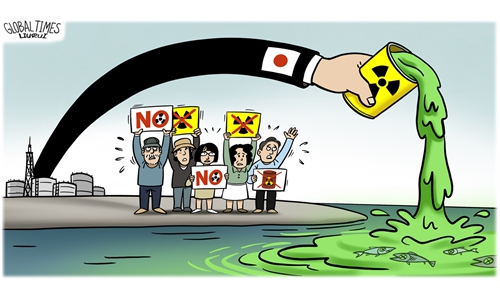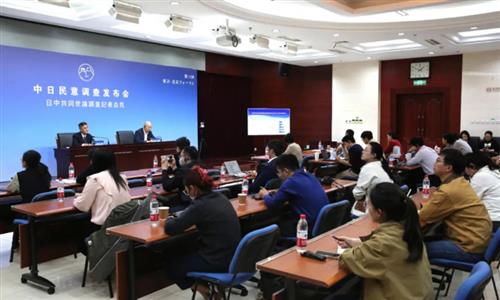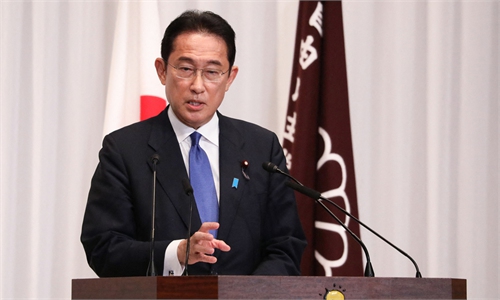About half of Japanese companies plan to maintain or boost investment in China: survey

A vendor at Noryangjin Fisheries Wholesale Market in Seoul's Dongjak District stands in front of her store, Friday. The market has seen a sharp decline in visitors due to the public's reluctance to consume seafood after Japan started releasing treated wastewater from a damaged nuclear power plant into the ocean in late August. Korea Times photo by Choi Won-suk
A white paper released on Thursday by the Japanese Chamber Commerce and Industry in China said that about half of the Japanese companies surveyed will boost or maintain their investment in China, underlining the fact that the Chinese market remains important in their business plans.
A survey for the white paper, released for the first time by the group, was held from September 8 to 22, with feedback collected from 8,300 Japanese companies doing business across China. It covered a wide range of industries from electronic machinery to chemicals, food and medicine.
Around 40 percent of Japanese companies expect to maintain their investment in China, and another 10-20 percent aim to boost their commitment, the white paper said.
More than half of those surveyed in the services sectors such as finance and telecommunications plan to expand or maintain investment in China.
Reasons given for increased investment include increased efficiency and enhanced functionality through automation, which make the companies more competitive, especially in the transportation and communications industries. Other reasons include investment in environmental protection, increased sales of automotive products and other factors.
The companies that expect their investment in China to remain unchanged will further study economic trends and other factors before deciding on their next investment plans.
About half of Japanese companies are satisfied with the business climate in China.
The reasons for their satisfaction include well-developed infrastructure and effective government support, generous government support in terms of taxation and subsidies, and the convenience of domestic business trips after the downgraded pandemic response.
When comparing government treatment enjoyed by Japanese and Chinese companies, over 70 percent of the surveyed Japanese companies said that they received the same treatment as domestic companies, and nearly 10 percent of those have received even better treatment, which experts said is a reflection of the continuous Chinese government efforts in providing an equal and fair environment for foreign companies.
Japanese companies give high marks to the efforts made by the Chinese government to improve the business environment, and that's not only the central government but also local governments, said Masami Miyashita, general manager of the Beijing office of the Japan-China Economic Association.
Challenges remain, the survey and the group suggested. China completely banned imports of seafood from Japan in response to the dumping, which Miyashita admitted "has had a great impact on the Japanese aquatic industry, while other products such as cosmetics were also affected to a certain extent."
Moreover, the current Japanese government's attempt to "decouple" or "de-risk" from China, under US pressure, has had an impact on the enthusiasm and pro-activeness of Japanese companies in economic and trade cooperation with China, Xiang Haoyu, a research fellow at the China Institute of International Studies, told the Global Times.
Despite the situation, Xiang said that the majority of Japanese companies intend to maintain investment in China and value the Chinese market, and the so-called "decoupling" from China is not practical at all.



